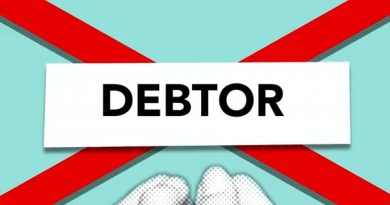Improve Habits to Transform Credit Score: Fix My Finances
Your financial health is closely tied to your credit score, making it a crucial factor to monitor and improve. Your credit score affects your ability to obtain loans, credit cards, and even job opportunities, so it’s essential to maintain a good score. By understanding how your credit score is calculated and adopting good financial habits, you can take control of your financial future and work towards a healthy credit score.. A good credit score not only helps you secure loans at favorable terms but also opens up opportunities for better credit cards, mortgages, and even job offers. But, improving your credit score isn’t something that can be achieved overnight. It takes time and effort, and the first step is to build good financial habits.
Here are some habits you can adopt to improve your credit score:
Table of Contents
Pay your bills on time

Your payment history is the most critical factor in determining your credit score, accounting for 35% of it. Paying bills on time is crucial for a healthy credit score. Late payments can harm your creditworthiness and stay on your report for years. Consider automatic payments or reminders to avoid late fees and build a positive credit history. To prevent missing payments, it’s important to establish automatic payments or reminders. Missing payments can adversely affect your credit score, so it’s crucial to make timely payments. Numerous credit card and loan providers provide automatic payment options, which automatically deduct your payment from your account on a designated day each month. Alternatively, you can set up reminders using your phone or bank to alert you of impending payments. By ensuring you pay on time, you can evade late fees and prevent harm to your credit score.
Keep your credit utilization low

Credit utilization is the ratio of your outstanding credit balance to your credit limit, indicating how much credit you’re using. Going over your credit limit can have negative implications on your credit score. High credit utilization is viewed as a sign of financial stress by lenders and credit bureaus, which can result in a lower credit score. It is recommended that you maintain a healthy credit utilization rate by using no more than 30% of your available credit. For instance, if your credit limit is $10,000, aim to use no more than $3,000 of your available credit. By maintaining a low credit utilization rate, you can demonstrate responsible credit usage and keep your credit score in good standing
Monitor your credit report

Your credit report contains all the information which you can check on https://www.equifax.com/personal/ that goes into calculating your credit score, including your payment history, credit utilization, and more. Regularly monitoring your credit report will help you spot errors or fraudulent activity that could be damaging your credit score.
No to opening too many new accounts at once

Every time you apply for credit, it generates a hard inquiry on your credit report, which can hurt your credit score. Applying for multiple credit accounts at once can be seen as a red flag by lenders and can lower your credit score.
Pay off debt

Paying off debt can have a significant positive impact on your credit score. It shows lenders that you’re responsible and can manage your finances well. Start by paying off the debt with the highest interest rate and work your way down. You can follow some of the tips mentioned in our how-to-fix finance section
Build a strong credit history

Demonstrating responsible financial management can boost your creditworthiness in the eyes of lenders. One effective way to do this is by paying off your debts in a strategic manner. Begin by tackling the debt with the highest interest rate and then gradually work your way down to the debts with lower interest rates. This approach can help you save money on interest payments while also reducing your overall debt load. By prioritizing your debt payments, you can show lenders that you’re capable of managing your finances effectively and responsibly. This can increase your chances of being approved for loans or credit in the future and potentially lead to more favorable interest rates and terms.
Use credit responsibly

Using credit responsibly means paying your bills on time, keeping your credit utilization low, and only borrowing what you can afford to repay. Responsible credit use shows lenders that you’re a low-risk borrower and can help improve your credit score.
In conclusion, improving your habits is an effective way to improve your credit score. By following these seven habits, you can take control of your finances and build a healthy credit score. Remember, it takes time, effort, and discipline to improve your credit score, but the benefits are well worth it.



